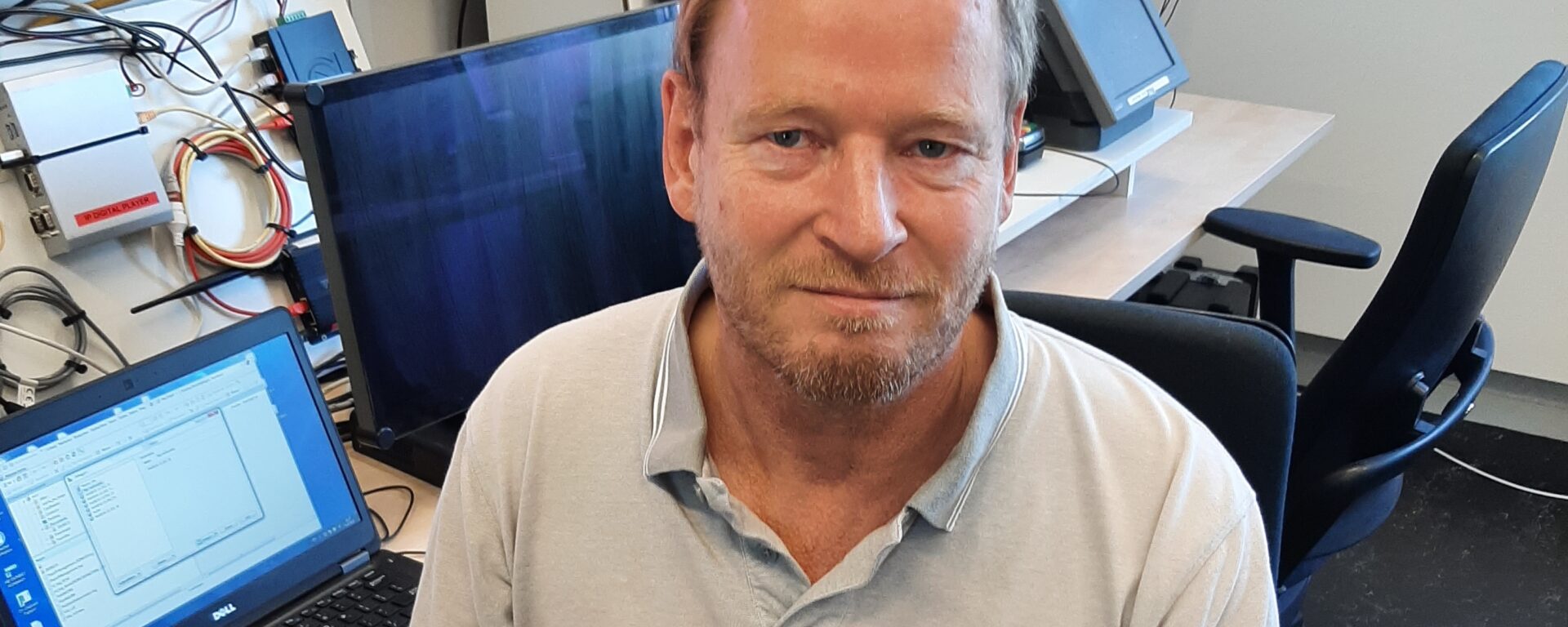The employee portrait series called “This is what I do” from Transdev Netherlands continues. The series wants to highlight the work of team members in different parts of the company and how they align with our Group’s purpose in serving the common good. This week we are highlighting Wilfred Zunnenberg, Application Manager and Traffic Light Expert. Here is the interview with him.
To get things started: in what part of our company do you work and what is your role?
I work in the Applications Team in IT. I work on the Viribus system, which is the name of the fleet management system. Some colleagues will know this as the ticket box. This system controls everything that the driver needs. The information screens for example, the settlement with public transit smart cards and passenger announcements.
This system runs on the basis of a complex chain of information. Take for example data from planning, data from transportation experts and all kinds of wishes from people in the company. At the same time, the bus passes on information, such as which stop it is at and what the departure times are.
And what is your role?
Within our team, everyone has their own specialty. Personally, I am an expert in traffic lights. As you probably know, buses often have priority at that point. To do this, they send radio signals to traffic lights. This means that each intersection is tailor-made. A traffic light must know whether the bus is turning left, straight on or right. And the signal should not be sent too late, but also not too early.
Everything has to be set so that you get the green light exactly when you arrive. Of course, that’s great for a reliable timetable. But the environment and climate are also important. Our buses pass 80 million traffic lights in a year and stop 20 million times.
One acceleration in a bus costs 0.1 liters of diesel. So, all those stops together cost 2 million liters of petrol. If we reduce the number of unnecessary stops by 10%, that saves a huge amount of money while reducing our carbon emissions.
What does your average work week look like?
Each Monday morning, we check whether there were any special malfunctions in the past week. Troubleshooting is complex and I spend about 60% of my time working on it. My role within the team is called ‘third-line support’, which means that faults come to me if we have not found a solution after two previous attempts. It is then a search to determine what the cause of the failure is. To do this, I analyze the log files and consult with other experts.
In addition, we update systems and come up with new functionalities, which of course we also implement. Sometimes these functionalities are part of the requirements package of a new concession. And other times we come up with functionalities by consulting with drivers. What problems do they often encounter? And what do they need? If it is affordable and technically feasible, we then develop software to solve the problem.
What do you like most about your job?
For example, we are now working on the introduction of EMV, which means that passengers can check in and out using their debit card. This is part of Public transport pay, which we want to use to eventually replace the public transit smart card.
This is new technology with the highest level of security. It must also be fast and anonymous. We are now running a pilot in the Gooi and Vecht region concession, where we keep running into errors. This system is new to everyone, and unfortunately a payment error can have many causes, so it really is a quest. When you find the solution, that really gives you the thrill.
The counterpart, of course, is that such a search can also be frustrating. Especially if a problem keeps coming back and we don’t have a good solution. We always try to improve, but it’s never perfect.
What skills do you need to do this job?
You have to be pretty technical. I build my own software to analyze malfunctions. Otherwise, I can’t get all those data streams together. It’s also impossible to buy such software, because these complicated failures require customization every time.
It also helps if you know the company well. Knowing what the drivers do in the bus, how the planning works and how they work in the garage. That context is important for solving problems.
If you could change one thing about your job, what would it be?
I think losing a concession is very unpleasant. At a time like that, there is a race for seats, and I have lost several colleagues because of it. Unfortunately, this is how the public transportation world is organized in the Netherlands.
Another point is ‘putting out fires’’. As I said, I spend about 60% of my time fixing problems. At such times, one person is always happy. It would be nice if I had more time to use my expertise to work on improvements for everyone.
And what part of your job makes you proud?
I am proud of the pleasant work culture within our company. We are open and put our shoulders to the wheel together. Everyone has the same goal: to make sure everything runs smoothly. To this end, we continue to develop ourselves. I like that dedication and loyalty.

